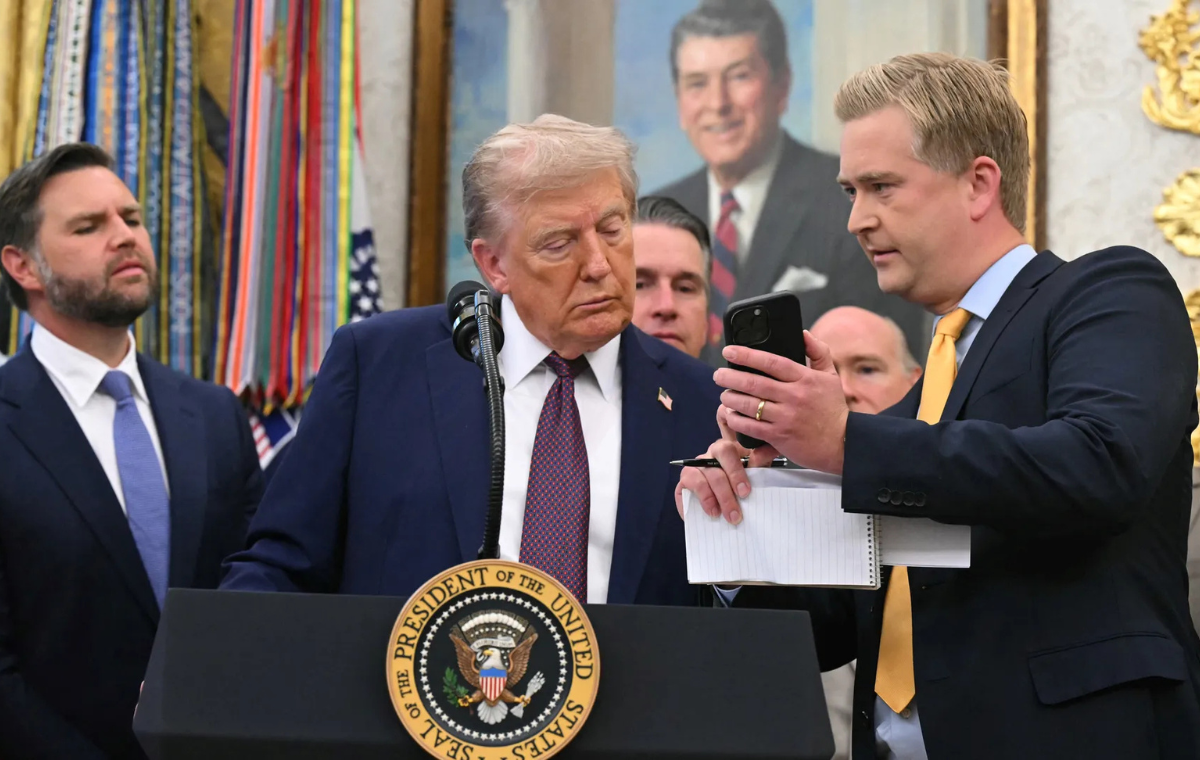MOGADISHU, Somalia — Speculation that former U.S. President Donald Trump had fallen gravely ill — or even died — dominated social media over the Labor Day weekend, sparking a viral frenzy of conspiracy theories, memes, and online chatter that extended far beyond fringe communities.
The rumors reached a peak Tuesday, when Trump addressed the claims during a public appearance. In a lighthearted exchange with a Fox News reporter, he was asked, “How did you find out over the weekend that you were dead?” Trump, with a smirk, responded that he had been unaware of the rumors surrounding his supposed demise, emphasizing that he had remained “very active,” playing golf, conducting interviews, and posting “poignant” messages on his social media platform, Truth Social.
The online frenzy underscores the speed at which baseless health rumors about the 79-year-old president can spread, generating millions of reactions, TikToks, memes, and Google searches. Many online users pored over minor details and photographs, creating elaborate theories about a potential White House cover-up. Even images of Trump’s slightly swollen ankles and a discolored hand — visible at Tuesday’s event — became ammunition for speculation.
Trump is the oldest president ever inaugurated in U.S. history, narrowly surpassing his predecessor, Joe Biden, whose age and health issues reportedly influenced his decision not to seek reelection. Media coverage of Biden’s struggles — including his widely criticized debate performance against Trump in June 2024 — has sparked conversations about a double standard in how the press treats aging politicians. Some commentators suggest that Trump’s off-script speeches, social media outbursts, and anecdotal storytelling could be read as signs of decline, though critics argue these behaviors receive less scrutiny than similar patterns in Biden.
The Labor Day weekend speculation was fueled by Trump’s six-day absence from major public appearances — his longest hiatus since taking office. Despite his brief Truth Social post declaring he had “NEVER FELT BETTER IN MY LIFE” and a fleeting appearance en route to a golf game, the lack of visibility made fertile ground for viral rumors.
The incident illustrates the influence of social media in shaping global perceptions of political figures, even in regions like the Horn of Africa. Readers in Somalia and neighboring countries were quick to follow the viral chatter, demonstrating how U.S. political narratives travel worldwide and intersect with local online communities interested in geopolitics and leadership fitness.
By addressing the rumors directly, Trump temporarily quelled the speculation, but the episode highlights the ongoing challenge for political figures managing narratives in the age of viral misinformation — and shows how quickly online hoaxes can gain traction internationally.
